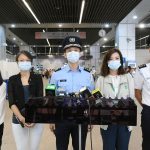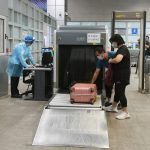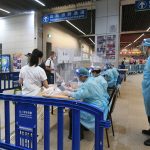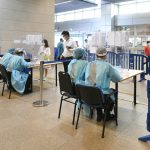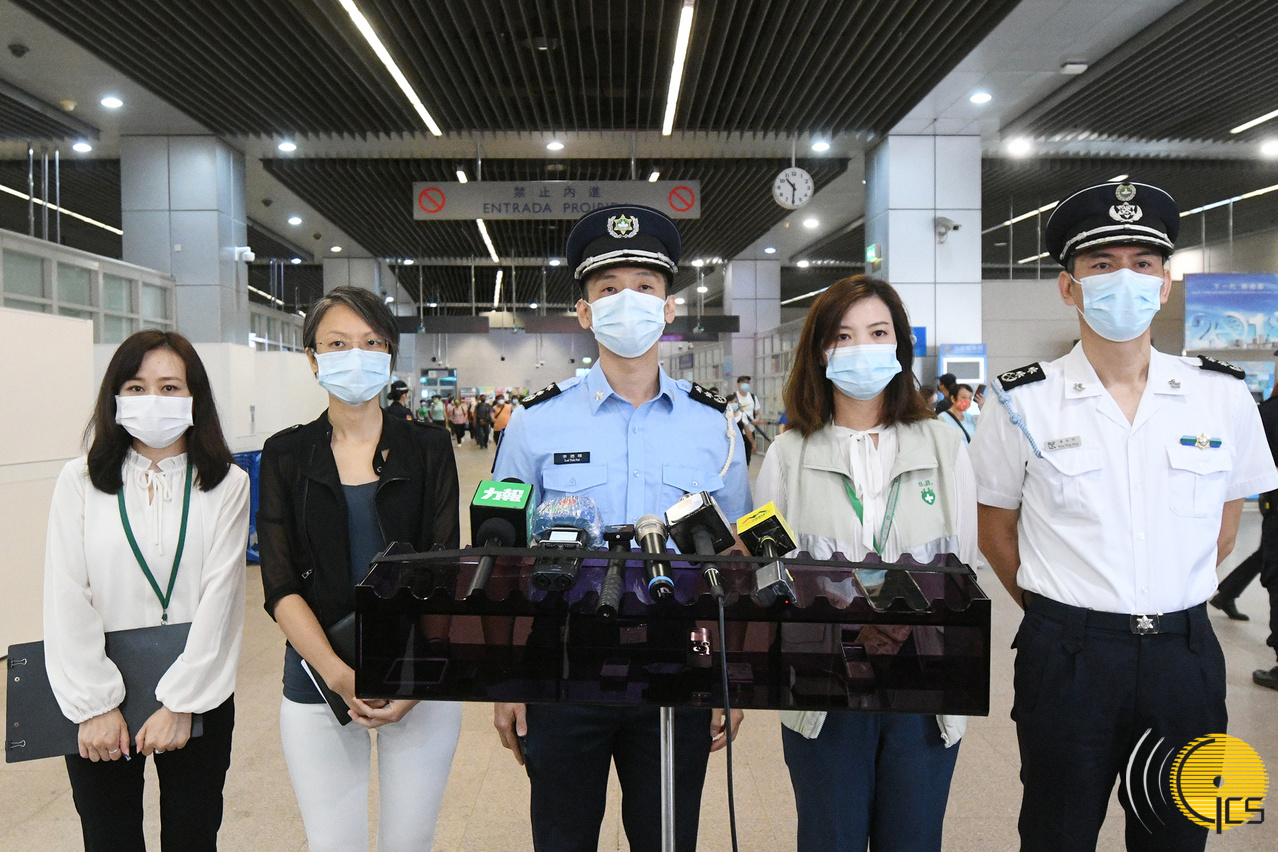 Government officials brief reporters on preparations ahead of the National Day Golden Week holiday.
Government officials brief reporters on preparations ahead of the National Day Golden Week holiday.
In view of a forecast increase in the number of visitors to Macao during the National Day holiday period starting from 1 October, Government departments have worked intensively on preparations relating respectively to boundary-crossing controls, immigration formalities, anti-epidemic measures, tourism activity, and consumer protection.
Officials respectively from the Public Security Police Force, the Macao Customs Service, the Health Bureau, the Macao Government Tourism Office, and the Macao Consumer Council today gave a briefing to reporters regarding Government preparations and related measures.
In preparation for the expected rise in the number of visitors from the mainland, the police had ensured that sufficient personnel would be deployed to support front-line operations, a representative from the Public Security Police Force said. The Government had maintained close communication with the mainland authorities in a bid to ensure a smooth flow of people at boundary crossings. In addition, the police would step up patrols in tourist areas and venues used for celebratory events, to maintain public order and prevent crime.
For the anticipated peak travel period, the Macao Customs Service had cancelled staff leave, said an official. This was in order to ensure sufficient personnel for customs inspection, coastal patrol duties, and monitoring and combatting of parallel trading, the official told reporters.
In an effort to prevent COVID-19 importation via cross-boundary travel, the Health Bureau would dispatch additional staff to boundary-crossing checkpoints to assist inbound travellers to undergo body-temperature checks, and to verify their respective declarations under the Macao Health Code system, as well as their nucleic-acid test certification.
Travellers outbound from Macao were advised to ensure they registered with the Guangdong health code system, in order to speed up relevant procedures at checkpoints. In addition, people intending to leave Macao for a holiday should pay close attention to any epidemic-related developments at their chosen destination. They should avoid going to any places or areas classified as ‘medium’ to ‘high’ risk regarding COVID-19. During their travels, they should always take stringent personal protective measures, i.e., always wear a protective face mask and wash hands frequently. They should seek medical advice immediately if they developed any symptoms associated with COVID-19.
The Macao Government Tourism Office would spare no effort in promoting preferential policies to encourage mainland-Macao cross-boundary travel, in the hope of increasing the number of visitors to Macao during the seasonal travel period, said a bureau representative at the press briefing. The Government would also maintain its promotional effort, via various channels, in relation to the latest epidemic-control measures applicable to travellers from the mainland. It would also issue reminders to the tourism industry about observation of anti-epidemic guidelines, the official added. Macao’s tourism hotline (+853 2833 3000) would continue its round-the-clock service during the holiday period.
A special service from the Macao Consumer Council would be available from 1 to 5 October, an official said. Anyone in need of assistance could either telephone +853 8988 9315 (for a round-the-clock recorded-message service) or use the Macao Consumer Council’s mobile application.
The Macao Consumer Council has signed cooperation agreements with more than 30 consumer-protection associations based either in mainland provinces or cities, regarding the handling of any complaints. Any enquiries or complaints could alternatively be made to those local associations when the tourists concerned return home, said a representative from the Macao Consumer Council.


